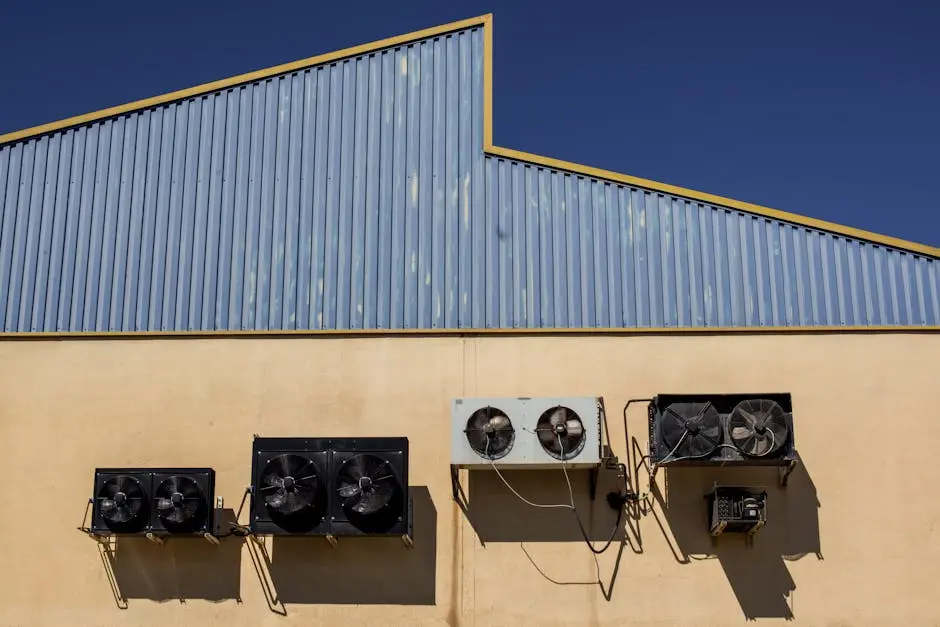Upgrading your HVAC system is a significant decision that can enhance the comfort of your home while also saving you money on energy bills. In this FAQ, we’ll explore how an HVAC replacement can drive energy efficiency improvements and support your household’s climate control needs.
Understanding HVAC Efficiency Ratings
Learn about SEER and EER ratings that measure HVAC efficiency, helping homeowners make informed decisions.
When considering an HVAC replacement, it’s essential to understand what SEER (Seasonal Energy Efficiency Ratio) and EER (Energy Efficiency Ratio) ratings mean. These ratings provide a clear picture of how efficiently a unit operates. Higher numbers indicate better energy efficiency, which can translate to substantial savings on energy costs. A unit with a SEER rating of 14 or higher, for instance, operates significantly more efficiently than older models, which might have ratings as low as 8.
As you dig deeper into efficiency ratings, keep in mind that not all HVAC systems are created equal. There are varying criteria and test conditions for these ratings. Understanding these nuances can empower you to select a unit that not only fits your home but also saves the most energy. Efficient systems often utilize the latest technology, ensuring that you’re getting the best value for your investment.
Benefits of New Technology
Explore how advancements like variable speed motors and smart thermostats lead to better energy management.
New technology integrated into today’s HVAC models offers exceptional efficiency. For example, variable speed motors allow the system to adjust its output based on the home’s needs, running longer at lower speeds rather than cycling on and off frequently. This not only saves energy but also enhances comfort by maintaining steadier temperatures throughout your living spaces.
Moreover, smart thermostats are game-changers. They learn your habits and preferences, optimizing heating and cooling schedules based on your daily routines. This means your system operates only when necessary, ultimately reducing waste and improving overall energy efficiency. With these new technologies, you are not just upgrading your HVAC system; you’re embracing a sustainable way of living.
Proper Sizing of HVAC Systems
Discover why having the right size HVAC system is crucial for optimal efficiency and comfort.
One of the most overlooked aspects of an HVAC replacement is proper sizing. An HVAC system that is too large will cycle on and off frequently, leading to increased wear and tear, reduced lifespan, and inefficient energy use. On the other hand, systems that are too small struggle to maintain comfort levels, using more energy to keep up. Therefore, ensuring your new system is correctly sized for your home is imperative for maximum efficiency.
Involving professionals in this sizing process is typically advised. They can perform a load calculation, based on the square footage and insulation of your home, ensuring that the new unit will perform efficiently. This attention to size not only optimizes performance and comfort but also enhances energy efficiency, allowing you to enjoy a balanced home environment.
Regular Maintenance and Energy Efficiency
Understand how new systems often come with maintenance plans that keep them running at peak efficiency.
The benefits of an HVAC replacement extend beyond the installation itself. Many new systems come with maintenance plans that ensure your unit operates at peak efficiency throughout its lifespan. Regular maintenance includes tasks like filter changes, system inspections, and minor repairs that drastically improve the system’s effectiveness and longevity. Keeping your HVAC system well-maintained can prevent energy waste and costly repairs down the line.
Additionally, some newer systems offer self-diagnostics and alerts that notify you when maintenance is due or if any component isn’t performing as it should. This proactive approach not only saves energy but also gives homeowners peace of mind, knowing that their climate control system is in top shape. By following these maintenance routines, you’ll maximize the efficiency gains achieved through your HVAC replacement while enjoying uninterrupted comfort.
Long-Term Savings Considerations
Calculate the potential savings on energy bills over time with a more efficient HVAC unit.
Investing in an HVAC replacement may seem like a hefty upfront cost, but the long-term savings on energy bills can be significant. A new energy-efficient HVAC unit can save homeowners anywhere from 20% to 50% on their heating and cooling costs when compared to older models. Over the lifespan of the unit, this can add up to thousands of dollars saved.
It’s also worth considering additional incentives, like rebates or tax credits for energy-efficient upgrades. Many states offer financial assistance to encourage homeowners to invest in high-efficiency systems. All of these factors combined make an HVAC replacement not just a smart choice for comfort, but a wise financial decision as well.
Recap on Energy Efficiency Benefits of HVAC Replacement
In summary, replacing your HVAC system can lead to substantial increases in energy efficiency through improved technology, better sizing, and enhanced maintenance. By investing in a new system, you’re not just securing a more comfortable environment; you’re also making a positive impact on your wallet and the planet.
